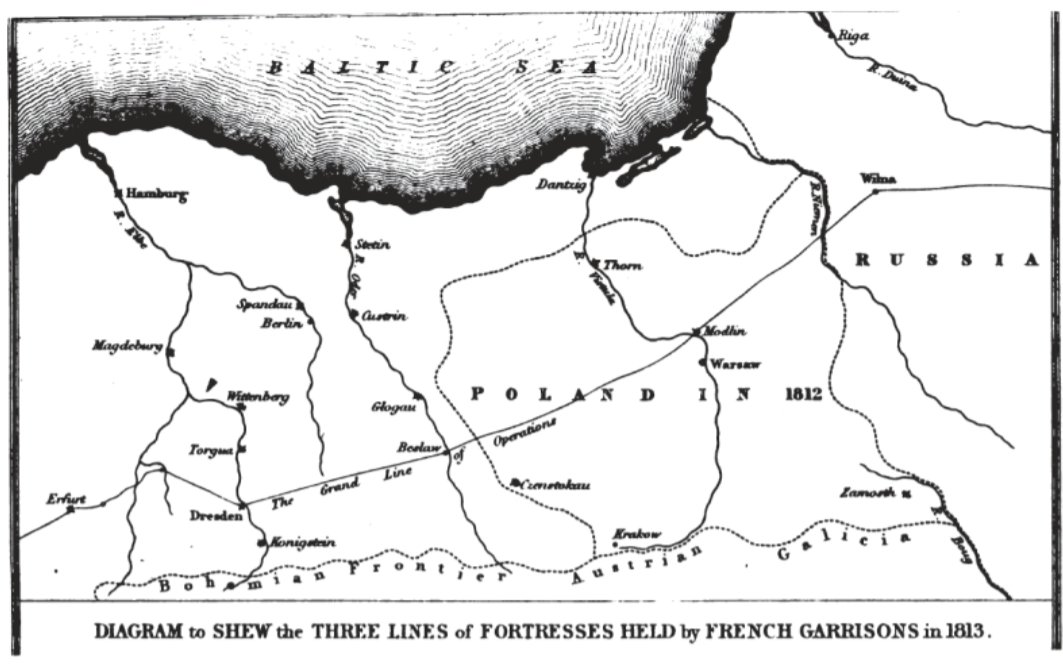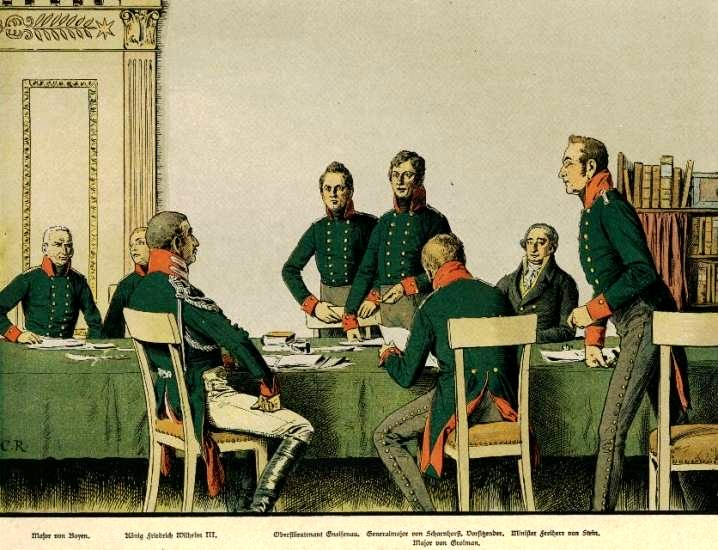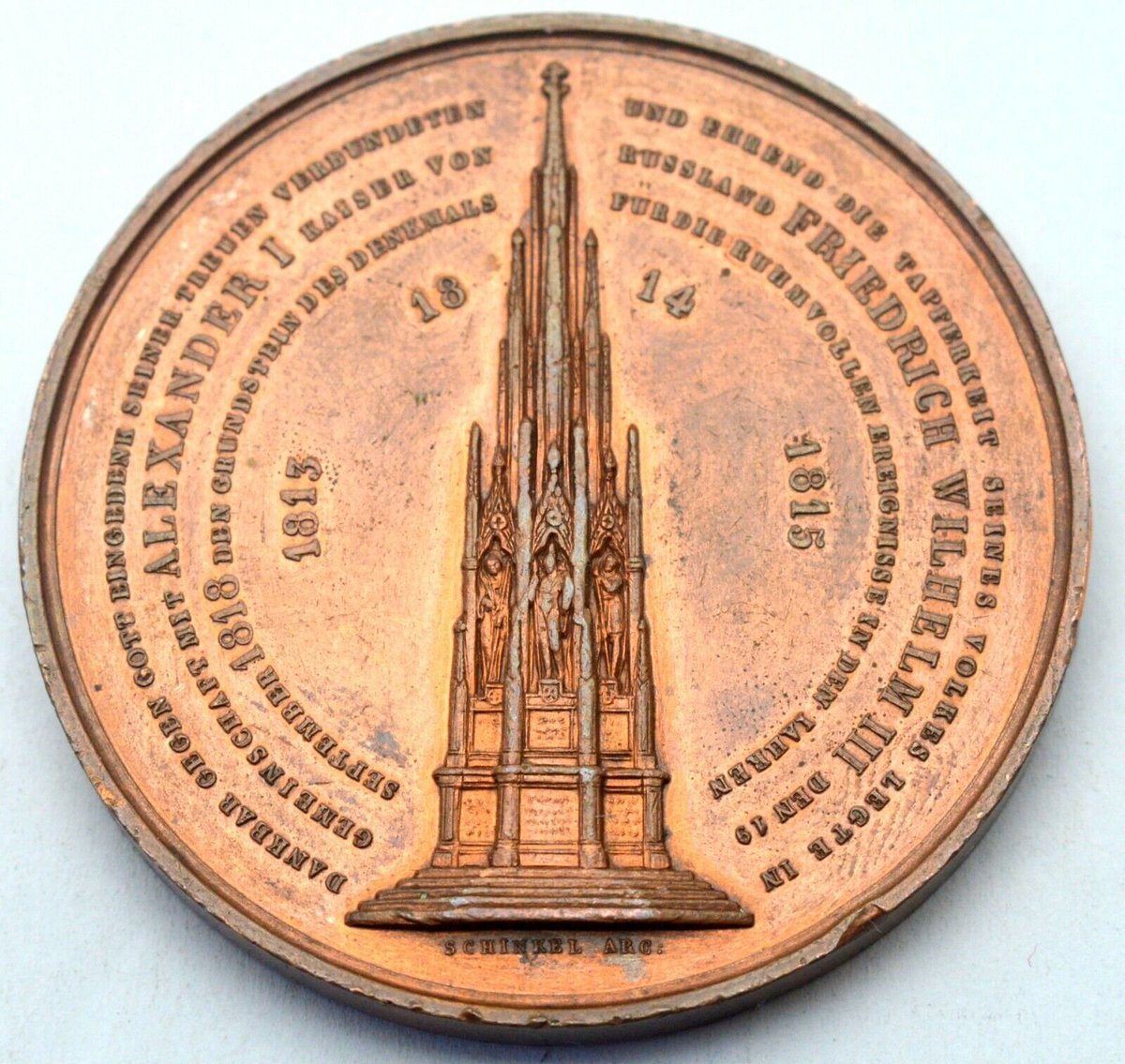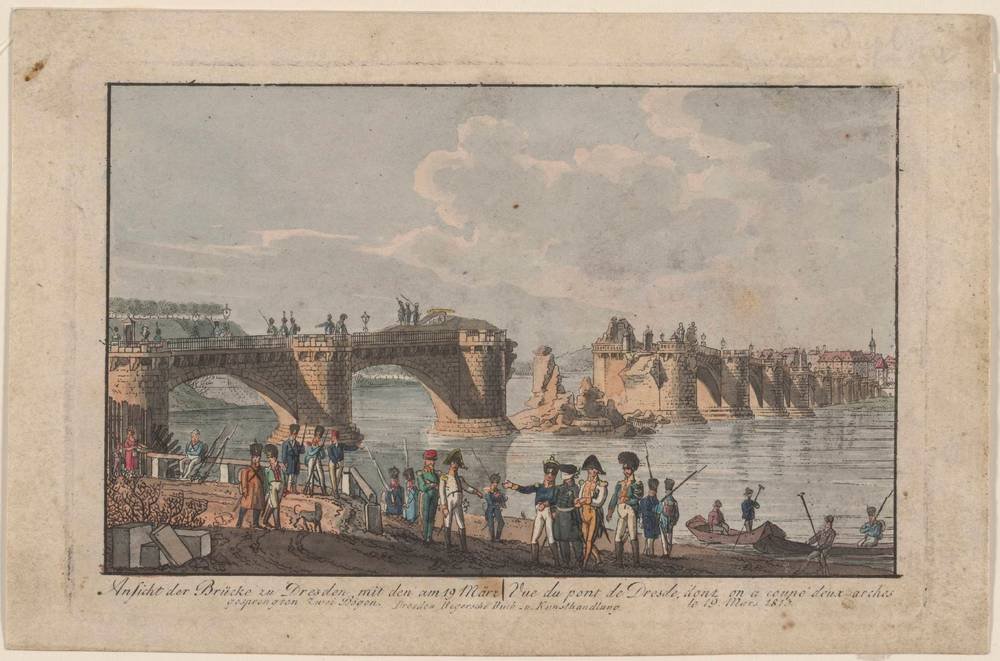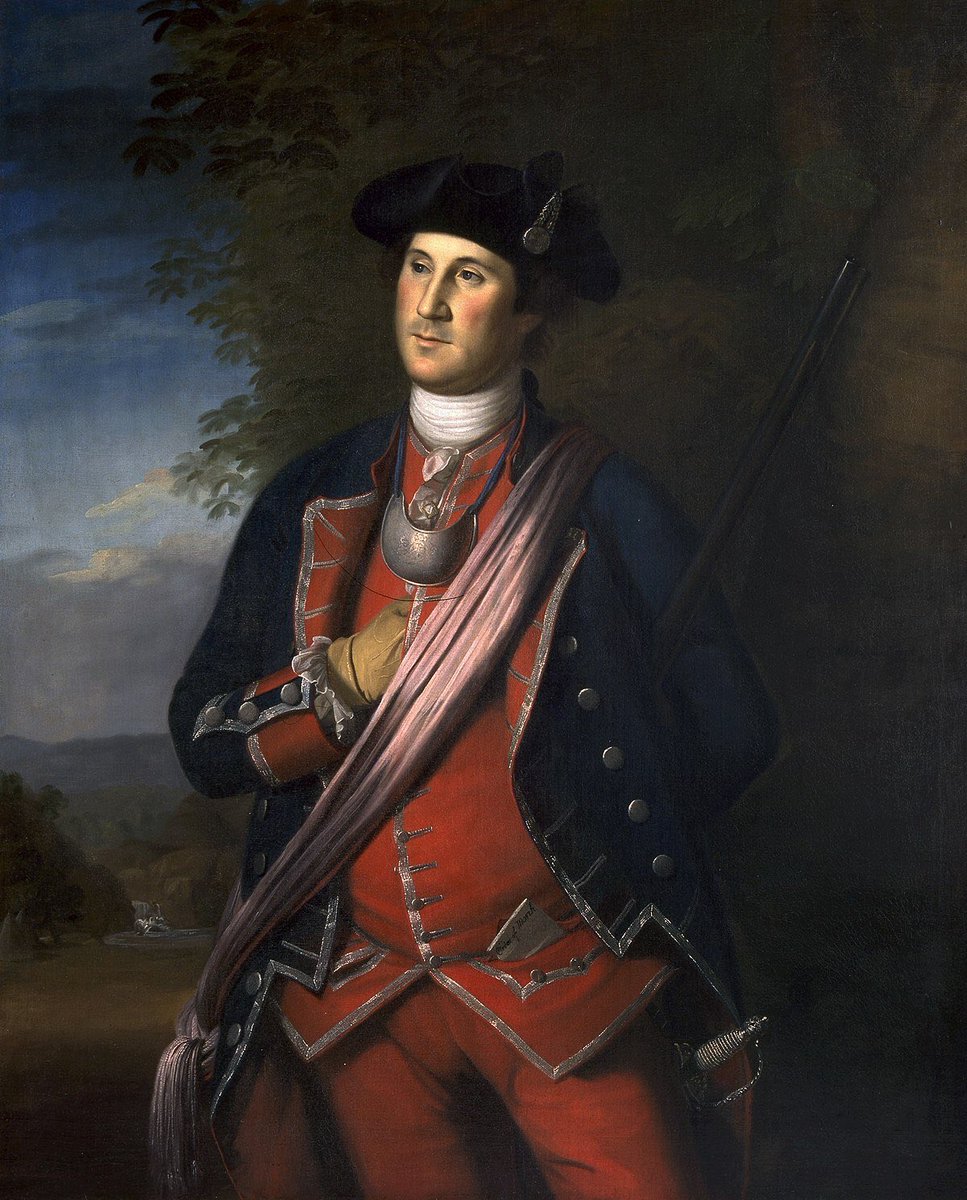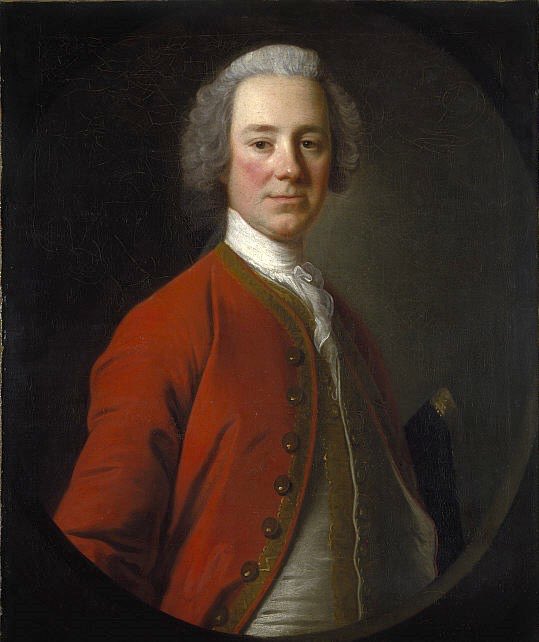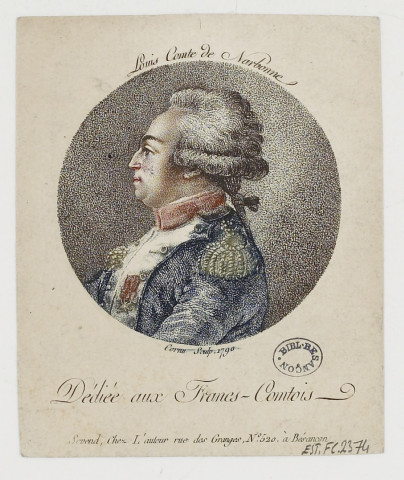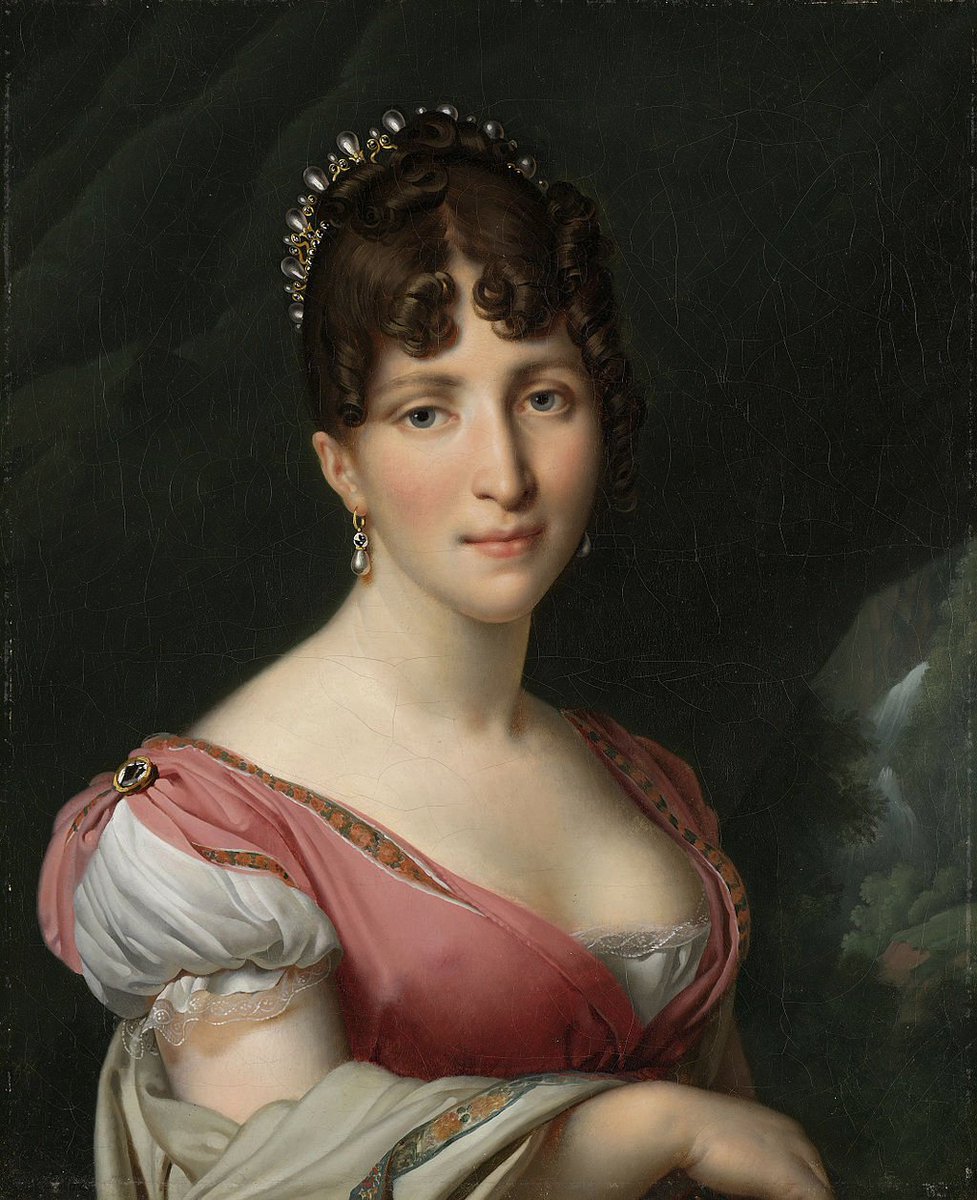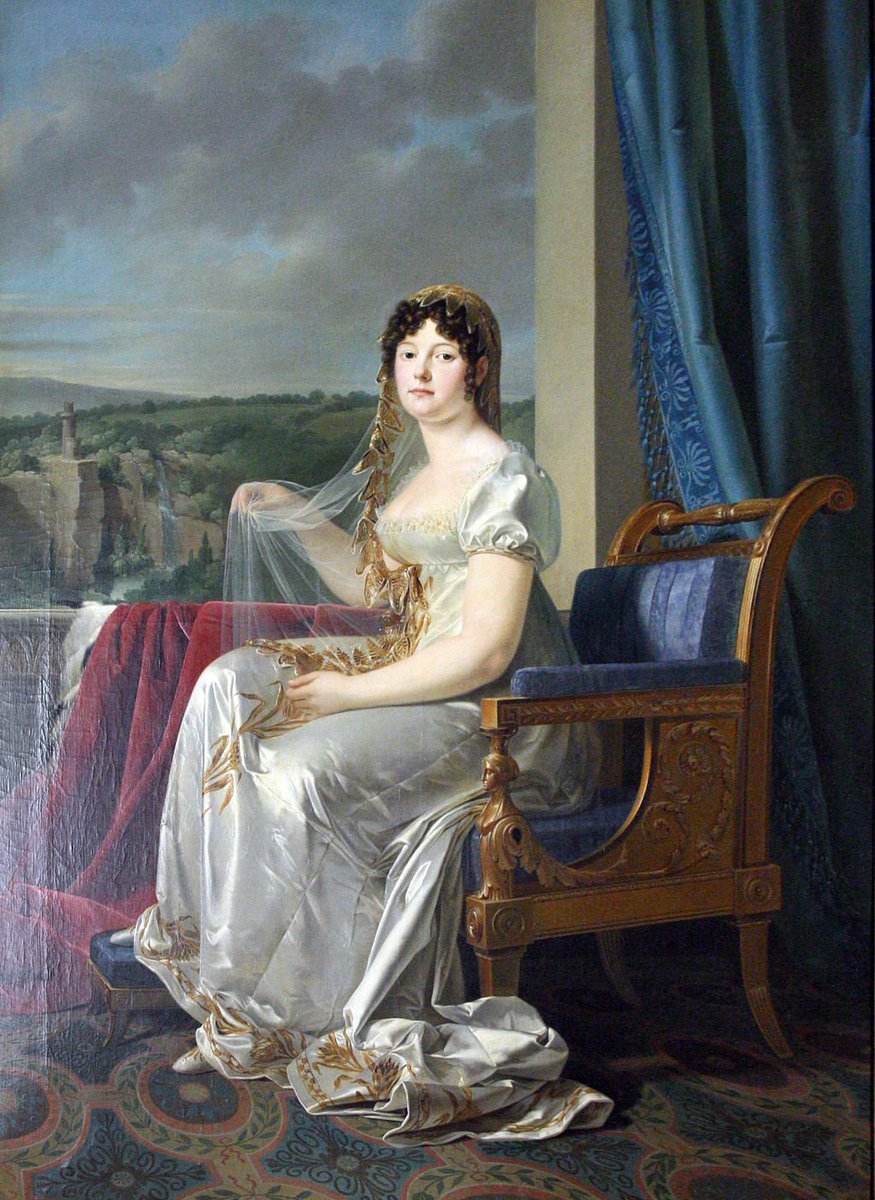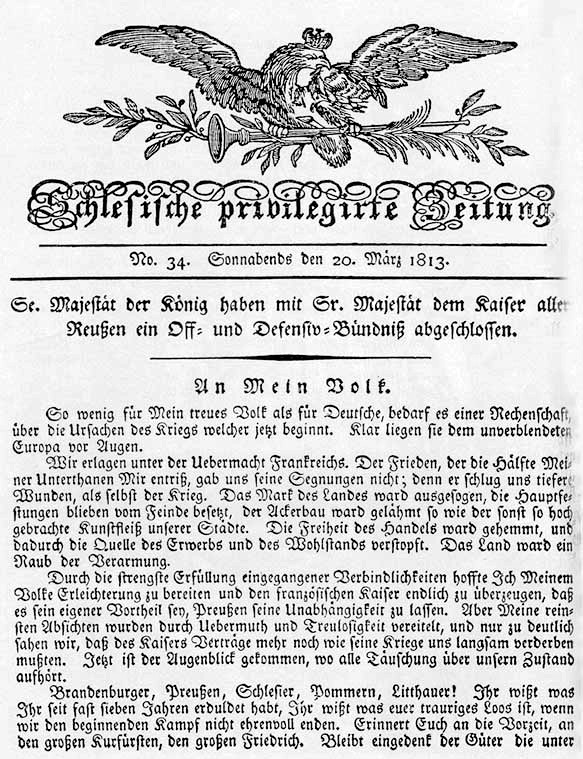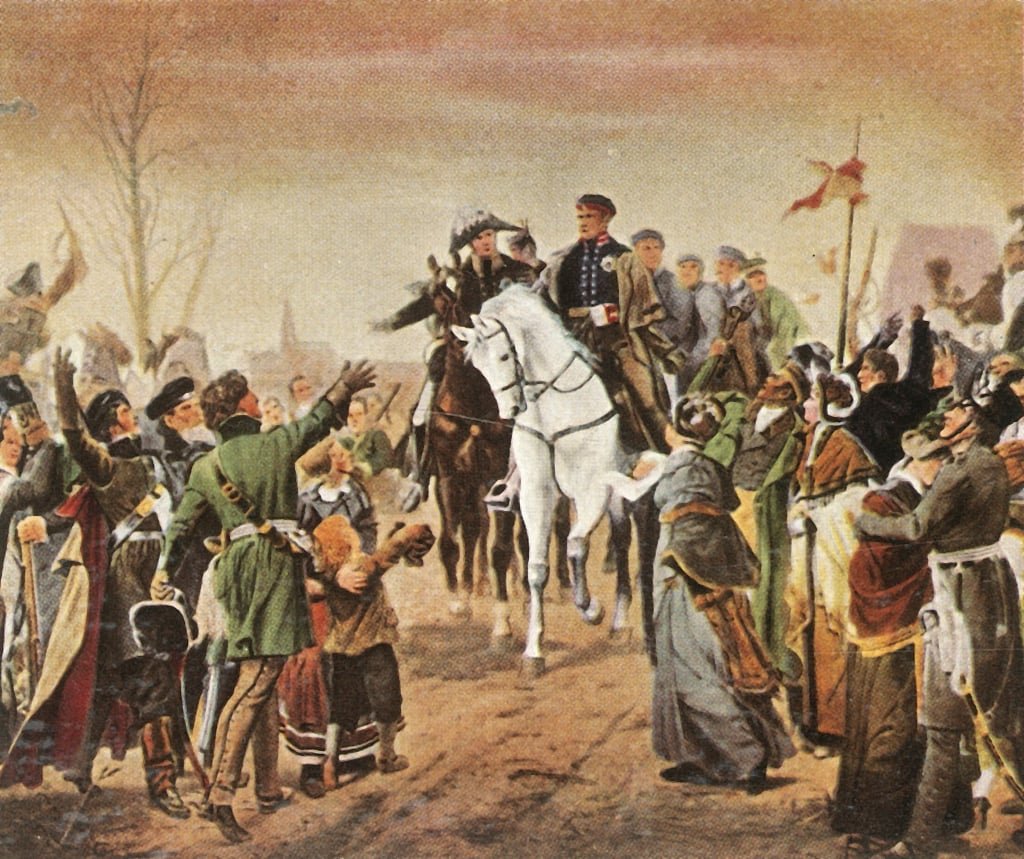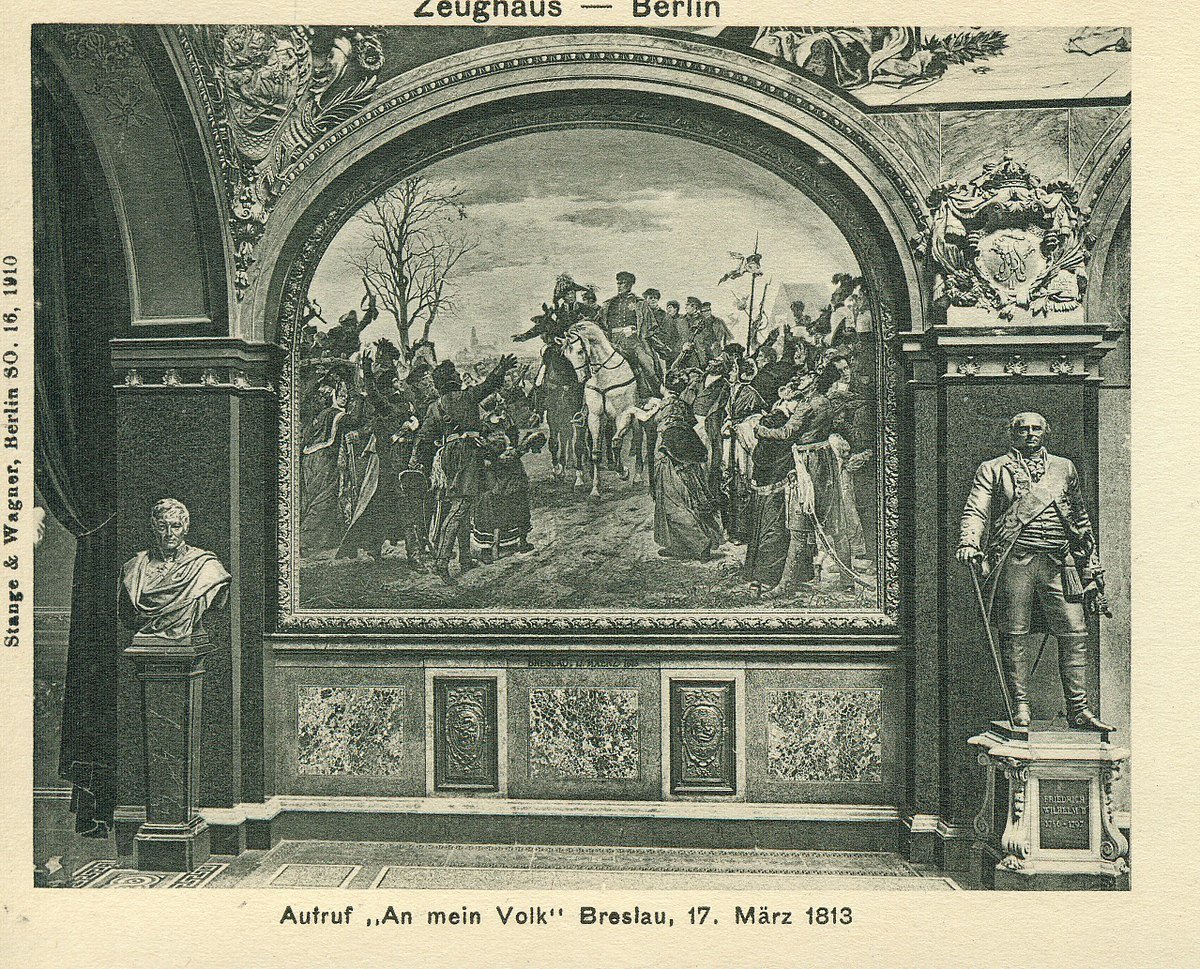
#OTD #Onthisday 18 March, 1813, Tettenborn seized Hamburg ahead of Morand and Carra St. Cyr, opening up the maritime gateway to northern Germany to the Allies.
While Napoleon prepared to declare a war against Sweden, a corps under Bernadotte began to disembark from Stralsund.

While Napoleon prepared to declare a war against Sweden, a corps under Bernadotte began to disembark from Stralsund.
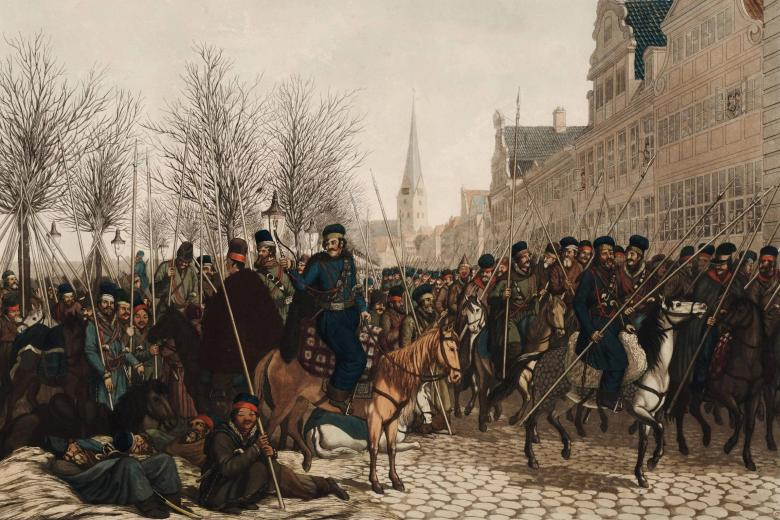
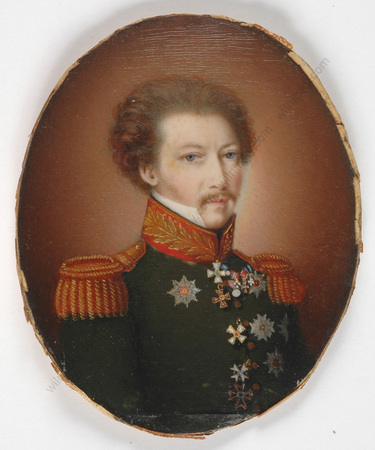
Hamburg was a bustling commercial city with the population of 100,000 men. Along with Bremen and Lübeck, the Hanseatic entrepot enjoyed its 'golden age' of neutral trade during the Wars of French Revolution, with France, Britain, and United States as its most lucrative partners. 
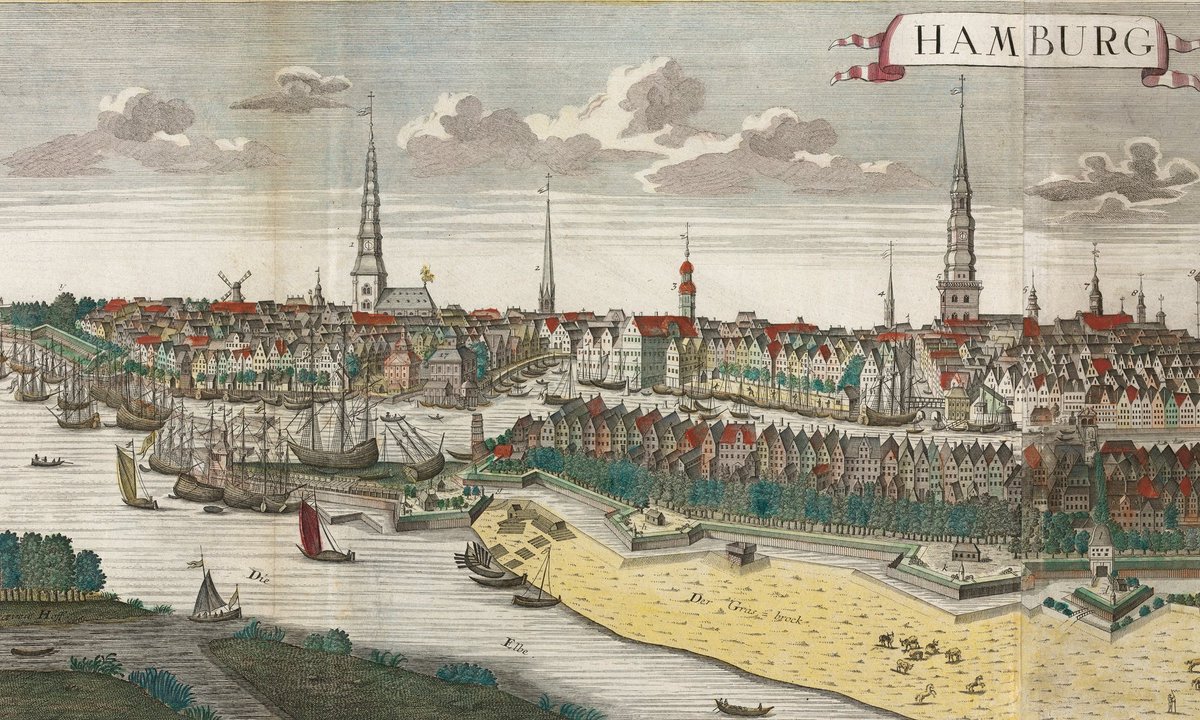
Around 1795, the economy of Hamburg became increasingly reliant on trade of Atlantic colonial goods with the British. From 1798 to 1799, the total sum of transaction rose exponentially from 42 million francs to 224.1 million francs.
(Katherine Aaslestad, Place and Politics)
(Katherine Aaslestad, Place and Politics)
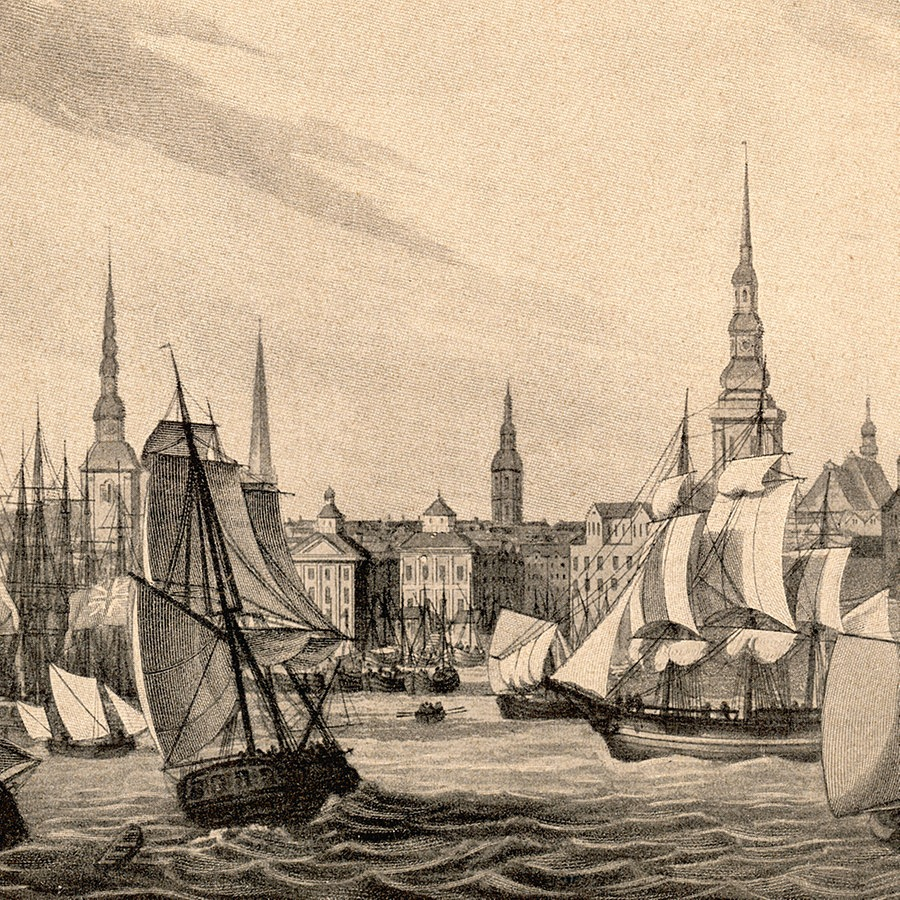
Following the short-lived Peace of Amiens (1802), Britain's naval blockade of the French commerce in May 1803 gave opportunity for the Hanseatic ports to exploit their roles as "the marketplace of Europe" which revitalized the economy of northern Germany.
(Ibid; Beerbühl)
(Ibid; Beerbühl)
The story of Nathan Mayer Rothschild, a Frankfurter merchant specializing in textile trade with Britain, and John Parish, Baron of Senftenberg, provides an interesting example.
As the British blockaded the Elbe and the Weser, and the French, in retaliation,

As the British blockaded the Elbe and the Weser, and the French, in retaliation,
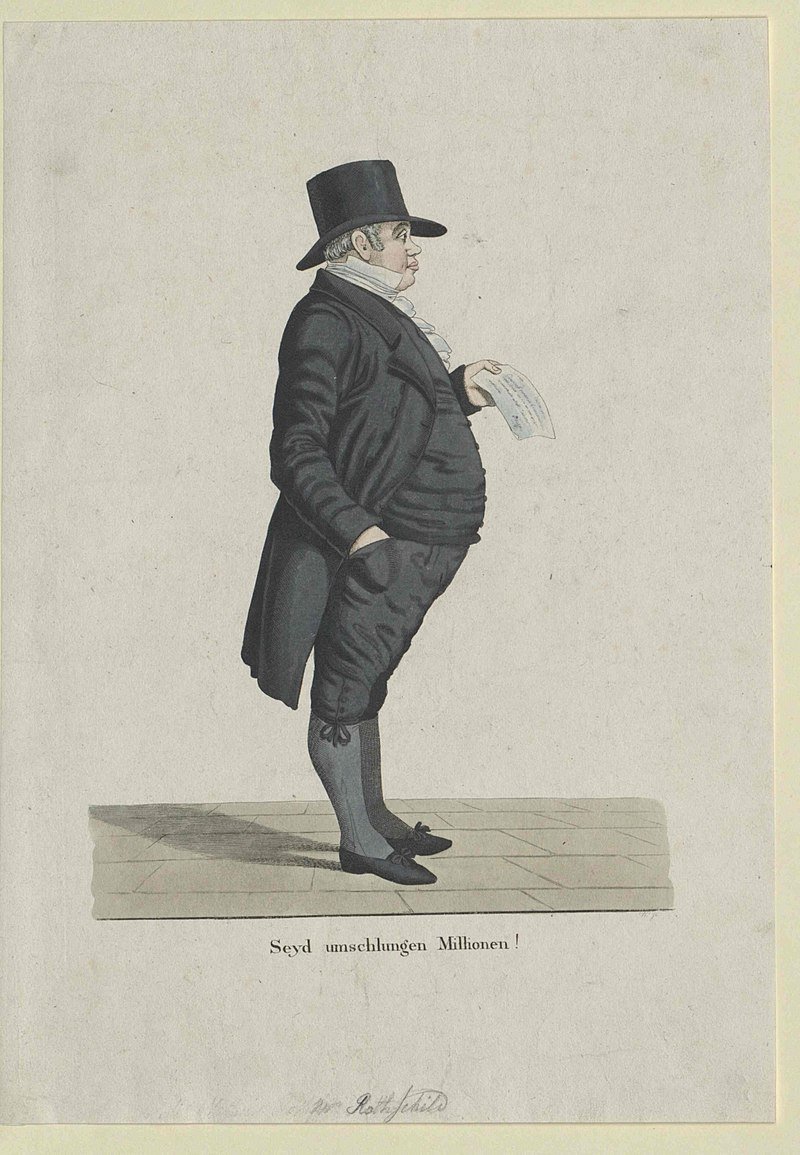
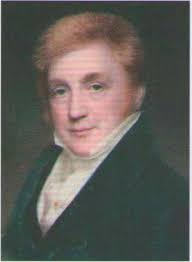
guarded "every avenue by which goods were introduced into Holland," as the Hull shipping of Clingham warned Nathan. With an increasing shortage of ports and trade depots in Germany, many, including his own banker Mayer Michael David, came to face bankrupcy.
Nathan transferred the center of his business to Hamburg, where his father had opened up a bank account in the house of John Parish. Together, Nathan and Parish conspired to "color" the English goods as German ones to be transported safely to Amsterdam, Rotterdam, and Frankfurt.
But the heyday of Hamburg was cut short by the outbreak of the War of the Fourth Coalition in October 1806. Although Hamburg, Lübeck, and Bremen had declared a free Hanseatic Federation in August, it became powerless in face of the Berlin Decree on 21 November 1806.
Hamburg completely lost its autonomy when Davout, on 13 February 1811, repealed the municipal constitution and subjected it to the French laws. With its maritime trade networks severed, the city was reduced to utter destitution.
(Beerbühl, Trading Networks; Aaslestad)
(Beerbühl, Trading Networks; Aaslestad)
Sensing the tide of war turning against the French, the citizens staged a riot against the French on 24 February, 1813. Carra St. Cyr, commander of the garrison of 18,000 men, struggling to quell the grassroot movements, attempted to make an example of the six dissidents.
They were sentenced to execution by a military trial, which only aggravated the tension with the locals. Then, the appearance of Russian light units in his vicinity began to alarm St. Cyr, who judged them to be the entire force under Tettenborn.
(Schlosser)
(Schlosser)
Against Eugene's wish, he evacuated Hamburg on 12 March, withdrawing to Bremen. Although St. Cyr intended to join forces with Morand, his indiscretion left Morand's army, which had only left Stralsund on the 9th, without an advanced guard in the long road ahead.
(Ibid; Charras)
(Ibid; Charras)
"Had not General St. Cyr so hastily evacuated the Elbe, he would have been promptly aided by the corps which General Vandamme soon brought from the Wesel, and afterwards by the corps with which Marshal Davout entered Hamburg," wrote Bourrienne.
Tettenborn, after concluding an improvised alliance with the Duke of Mecklenburg-Scherin on the 14th, continued to push to the north. A Cossack ambush on the 15th and Ewald's refusal to grant Morand a safe passage on the 16th greatly reduced the distance for Tettenborn. 
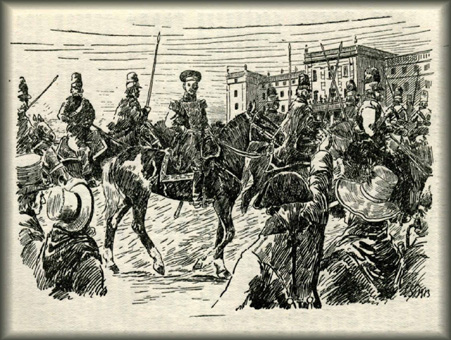
Between the 16th and the 17th, Morand attempted to make a 15 leagues' detour from Bergedorf towards Hamburg. At daybreak on the 16th, the French army marched to a Custom House near Eschebourg, where Morand had his baggages transported across the Elbe.
(Philippart)
(Philippart)
Due to the time wasted, Tettenborn also reached Bergedorf on the 16th, where he discovered a French position on a cross-dam over a narrow defile connecting Bergedorf with Eschebourg.
The chase resumed, which Tettenborn proudly described to Stein on the 19th:
The chase resumed, which Tettenborn proudly described to Stein on the 19th:
"After a rather lively attack by the Cossack skirmishers on foot in Eschebourg, where the enemies did not fail to greet us with their cannons, I detached a party of 60 horses to Bergedorf, which pushed back the enemy's pickets so abruptly and in an alarmingly lively manner... 
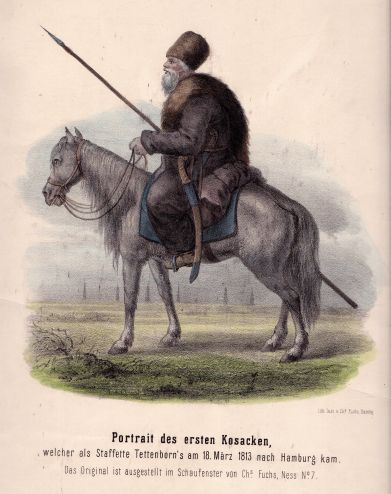
General Morand abandoned his first plan and resolved to withdraw to the left bank of the Elbe, I made him continue on the 17th.
With ardor I pursued him and, had the ground not been so obviously unfavorable to the cavalry, this retreat would not have failed to cost him dearly;
With ardor I pursued him and, had the ground not been so obviously unfavorable to the cavalry, this retreat would not have failed to cost him dearly;
I have never regretted so much not having 500 infantrymen, with which the whole corps of Morand would have been taken. Near the passage of the Zollerspieker, the French defended a last position behind a cross-dam which could only be approached by a very narrow path.
The enemy defended this position with 6 pieces of cannon; after an engagement by the skirmishers, I had my cannon aimed at the enemy who, perhaps, had not assumed I had artillery.
My cannon had a full effect, the enemy withdrew after a rather lively cannonade with so much haste,
My cannon had a full effect, the enemy withdrew after a rather lively cannonade with so much haste,
and a hundred Cossacks followed him so closely, that he fled in boats and left us with 6 cannon."
Afterward, Tettenborn returned to Bergedorf, where he was greeted by "a deputation of the city of Hamburg," whom Bourrienne identified as Senator Bartch and Doctor Know.
Afterward, Tettenborn returned to Bergedorf, where he was greeted by "a deputation of the city of Hamburg," whom Bourrienne identified as Senator Bartch and Doctor Know.
While the two implored him to expel the French from the city, he was suspicious of their motives. He only agreed under the conditions which must have exhilarated the envoys:
1. That he does "recognize any French authorities"
2. That they reestablish the old municipal authority
1. That he does "recognize any French authorities"
2. That they reestablish the old municipal authority
At four o'clock on the 17th, 40 Cossacks entered the town, whose poverty-stricken population had been reduced to about 3/4 of that before the blockade.
On the next day, the 18th, Tettenborn himself was received "with acclamations which surpass all imagination."
On the next day, the 18th, Tettenborn himself was received "with acclamations which surpass all imagination."

Despite having no more than 2,000 skirmishers, he had defeated Morand's of 2,000 to 3,000 well-trained men, who fled in the direction of Bremen.
At ten in the morning, he issued a proclamation liberating Hamburg, sparking Vive Alexandre! which did not subside until midnight.
At ten in the morning, he issued a proclamation liberating Hamburg, sparking Vive Alexandre! which did not subside until midnight.
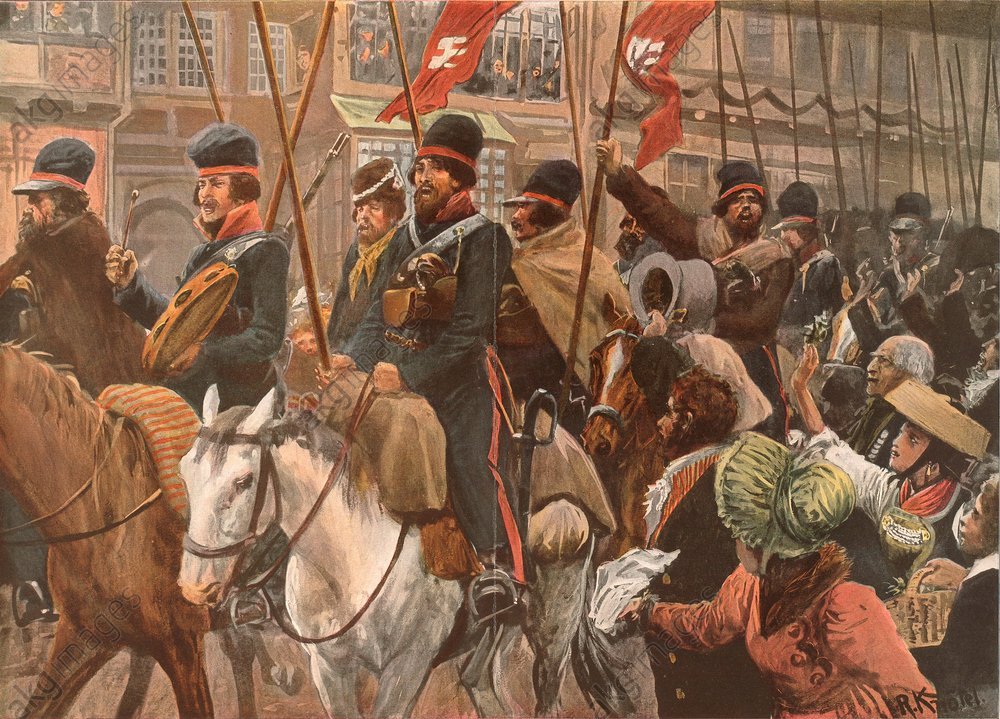
The deputation of Lübeck came in, to whom Tettenborn repeated the terms he had Bartch and Know agree with.
From the Trianon, Napoleon again chided Eugene for letting St. Cyr make the mistake:
(Tettenborn to Stein, 19 March, 1813; Pertz; Philippart; Bourrienne)
From the Trianon, Napoleon again chided Eugene for letting St. Cyr make the mistake:
(Tettenborn to Stein, 19 March, 1813; Pertz; Philippart; Bourrienne)
"The evacuation of Hamburg costs me many millions and more than one hundred pieces of cannon, and it causes your cavalry a great delay in its organization."
(Napoleon to Eugene, 18 March 1813; Correspondences, 19734)
(Napoleon to Eugene, 18 March 1813; Correspondences, 19734)
This was particularly worrisome when the existing cavalry, under Latour-Maubourg, was in a dismal state.
"Let him know that the poor organization of his corps is his fault and that of all the generals, who...have done nothing...as if frozen until now," he prodded Eugene.
"Let him know that the poor organization of his corps is his fault and that of all the generals, who...have done nothing...as if frozen until now," he prodded Eugene.
In reality, he was making an understatement, for the fall of Hamburg cost more than his men. Tettenborn had opened up the maritime gateway to northern Germany to the British and the Swedes. For Napoleon, the loss attenuated the French line of operation on the Lower Elbe.
Moreover, the reopening of the neutral port allowed for the passage of the Allied goods and capitals across the Baltics, hence, to cite Michael v. Leggiere, serving as "the final death blow to the Continetal System."
(Leggiere, Napoleon and the Struggle for Germany)
(Leggiere, Napoleon and the Struggle for Germany)
A Swedish corps began to disembark from Stralsand, just on the day when Napoleon decided to prepare a declaration of war against Sweden:
"Monsieur Duke of Bassano, I beg you to bring me today, at four o'clock, all the pieces on Sweden.
"Monsieur Duke of Bassano, I beg you to bring me today, at four o'clock, all the pieces on Sweden.
I think that it is time to make a declaration and print the copies.
My intention is to inform the Senate of the appointments of the senators I had made for the Hanseatic cities, in which I will communicate my resolution never to yield any of the provinces of my Empire.
My intention is to inform the Senate of the appointments of the senators I had made for the Hanseatic cities, in which I will communicate my resolution never to yield any of the provinces of my Empire.
I think, in this circumstance, it is necessary to publicize Sweden's plans for Norway and the causes of our rupture with Sweden. That can have only advantages and does not have any more disadvantage."
(Napoleon to Maret, 18 March 1813; Correspondences, 19730)
(Napoleon to Maret, 18 March 1813; Correspondences, 19730)
To his relief, the Russian occupation of Hamburg would not last long. Tettenborn not only lacked enough forces to garrison Hamburg, but also neglected to take systematic measures to bolster its defense, only sending Dörnberg, Chernyshev, und Benkendorff for reconnaissance.
More critically, the Iron Marshal was about to leave for Hamburg. But he would not do so before seeing the Augustus Bridge (Augustusbrücke) exploded.
Late at night, an eyewitness in Dresden recounted the petrifying moment when Davout announced his decision:
Late at night, an eyewitness in Dresden recounted the petrifying moment when Davout announced his decision:
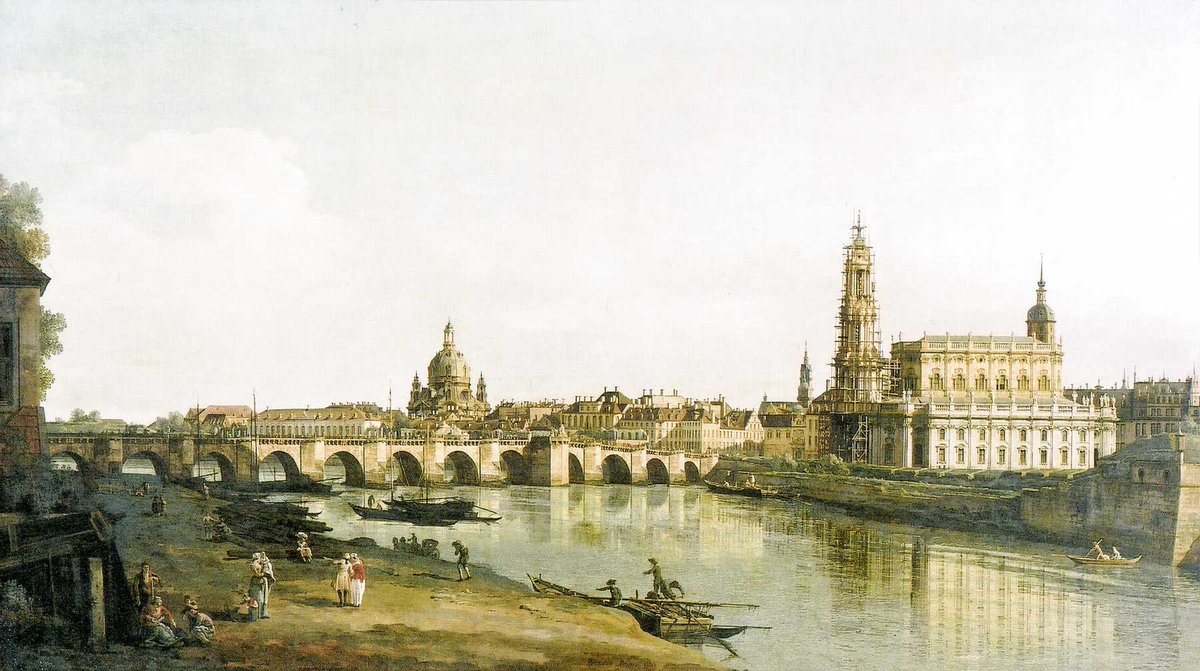
"Davout...had brought miners from Freiburg who had to dig a deep shaft with several passages into the third pillar...
...Driven by curiosity, I came to a scene which would have been worthy of a stroke of brush by Rembrandt.
...Driven by curiosity, I came to a scene which would have been worthy of a stroke of brush by Rembrandt.
Davout had announced to the government that the bridge would be blown up in the morning, as if it was irrevocable, and he did it quite scornfully, like the execution of a patriot in broad daylight:
'The bridge will be blown up tomorrow morning; I will not reserve this spectacle for the rebellious citizenry.'
Later, it dawned on a pious miner that "the Lord Christ...the gilded Crucifix which stands straight on the third pillar," had been forgotten.
Later, it dawned on a pious miner that "the Lord Christ...the gilded Crucifix which stands straight on the third pillar," had been forgotten.
"...[I]t was only with difficulty," wrote he, "that the marshal was able to give permission for the Savior to be brought to safety."
The remainder of his entry poignantly illustrates the citizens' endeavor to save the reminder of their undying faith before the havoc.
The remainder of his entry poignantly illustrates the citizens' endeavor to save the reminder of their undying faith before the havoc.
I was present during his removal from the cross. The night was dark and silent; only the waves of the stream beat below against the pillar with a menacing murmur of anticipation. The flickering flame of the pitch torch cast glaring streaks of light across the scene. 
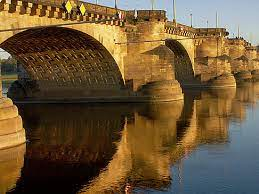
Ladders were attached to the cross; on one of them stood an old locksmith with a sooty face and a brown fur hat, pulling out the nails with his hands and feet with pliers. A pair of sturdy sappers, assisted by some miners, grasped the body; below stood four with a portchaise,
with a stretcher over which white clothes were spraed. An officer in a wrinkled blue coat had on his arms two ladies who could not help but cry when the crucifix was carried away, and thus the last hope of preserving the bridge disappeared."
(Forster)
(Forster)
In Breslau, Frederick William declared a new cabinet order for the formation of four additional corps: the IV between the Elbe and the Weser, the V on the Oder, and the VI and VIII around Berlin. Blucher's field army would guard the lower Rhine.
(Leggiere, Blucher)
(Leggiere, Blucher)
On the day, commemorations of different nature were issued in Paris and Breslau. The former, as recorded by Castellane, was about the death of a hero:
"A service was held at Saint Philippe du Roule for Alfred de Noailles, killed at the passage of the Berezina;
"A service was held at Saint Philippe du Roule for Alfred de Noailles, killed at the passage of the Berezina;
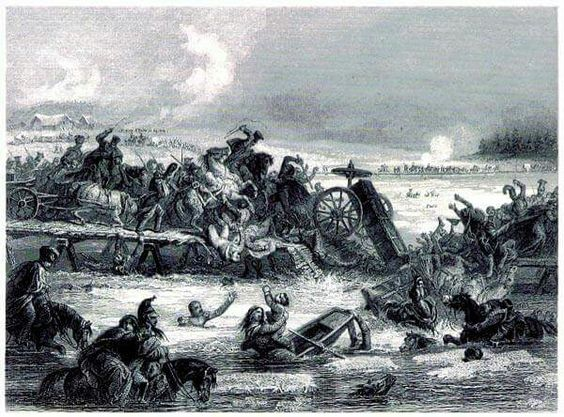
he was a very brave officer, a very good soldier. He was very devout, he loved our profession very much and fulfilled its duties with scrupulousness; as usual, we took much more care of the assistants than of the deceased."
(Castellane)
(Castellane)
The occasion ominously overlapped with King Joseph Bonaparte's permanent retreat from Madrid; both Moscow and Madrid, thus, were forever lost.
In contrast with the tragic death of the 28-year-old hero, Breslau was celebrating a new beginning for a grey-haired general.
In contrast with the tragic death of the 28-year-old hero, Breslau was celebrating a new beginning for a grey-haired general.
Alexander, bestowing the Order of St. Nevsky to Yorck, wrote to him:
"At a moment...in which my friendly relations with the king are reaching a higher degree of intimacy every day, it is impossible for me not to remember how much Your Excellency had contributed to
"At a moment...in which my friendly relations with the king are reaching a higher degree of intimacy every day, it is impossible for me not to remember how much Your Excellency had contributed to
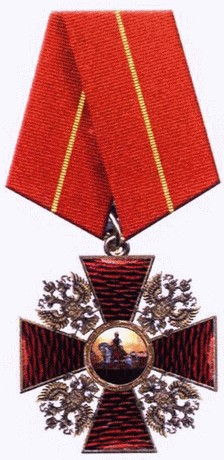
prepare the means for the establishment of this beautiful relationship.
Therefore, I am sending you the Order of Alexander Nevsky as a token of the esteem with which Your Excellency and your relentless zeal for the holy cause fill me."
Therefore, I am sending you the Order of Alexander Nevsky as a token of the esteem with which Your Excellency and your relentless zeal for the holy cause fill me."
In the parcel containing the Tsar's letter and the emblem of his trust, Scharnhorst added:
"With indescribable pleasure I send you the Alexander Order; Emperor Alexander speaks of you with the greatest respect, he regards you as a man to whom we have infinitely much to owe..."
"With indescribable pleasure I send you the Alexander Order; Emperor Alexander speaks of you with the greatest respect, he regards you as a man to whom we have infinitely much to owe..."
(Forster)
-The End-
-The End-
@threadreaderapp Unroll
• • •
Missing some Tweet in this thread? You can try to
force a refresh


